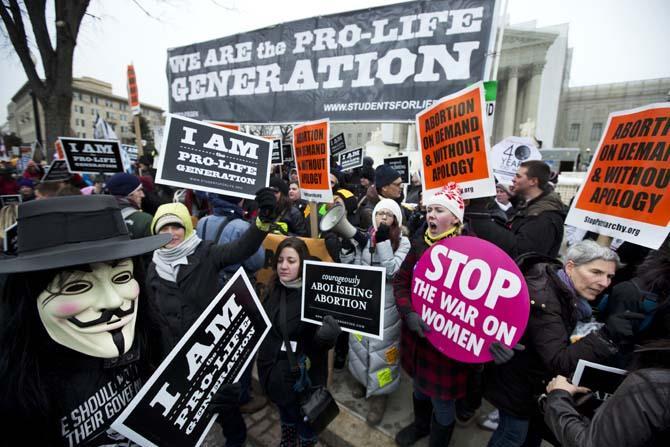Louisiana, in all its pro-life glory, is blurring the lines separating feticide from homicide. We are at a point where our laws enable the justice system to pick and choose which situations are worse than others. For those of you who aren’t familiar, feticide is the destruction of a fetus.
That sounds a lot like abortion to me.
Louisiana defines feticide as the killing of an unborn child by the act, procurement or culpable omission of a person other than the mother of the unborn child. Abortion is defined as the deliberate termination of a human pregnancy.
A 32-year-old Baton Rouge woman was arrested Friday for feticide. Princess Beachem gave birth to a stillborn after undergoing an emergency cesarean section when doctors couldn’t find her child’s heartbeat. She later admitted to authorities that she snorted cocaine a few days prior to the baby’s death because the baby’s father broke up with her.
Anyone can see the magnitude of this tragic event. Cocaine was found in the baby’s blood and was deemed the reason for the untimely demise. The mother deserved to get arrested for her neglect, which ended in death.
But where is the line separating feticide and abortion?
Abortion is the termination of a pregnancy, and it seems like this woman did just that. We care so much more about the well-being of a child just because drugs were involved.
Or it might be that we care more because this termination was an accident. Apparently because abortions are intentional, they are legal.
What doesn’t make sense to me is why people will read the crime brief on Beachem in the news and feel like they have a right to judge her. It’s not right to label some mothers as criminals and not others. The law shouldn’t be subjective.
Like any mother who loses a child, I guarantee she feels some remorse for the frantic mistake that led to her fate.
She clearly has some problems and shouldn’t be let off the hook for her actions, but how can we hold her accountable and not the other 1.21 million mothers who terminate their pregnancies in America each year?
Major birth defects can sometimes be traced back to mothers using drugs. Most of the time, hospitals ignore these signs and the very women who caused their babies’ problems are allowed to take them home. That should be considered child abuse if we consider fetal death by drugs feticide.
Last month, another incident like this occurred in Baton Rouge. After a mother and baby both tested positive for cocaine following the child’s birth, the mother was still given custody of her baby, which was born premature. The baby died 12 weeks later after being disconnected from its respiratory device.
When things like that happen, we should re-evaluate our systems and revise them so they make sense.
Our state and the rest of the country is tiptoeing around these issues. We need to draw clear lines defining abortion, feticide and child abuse if we want to seem consistent in our efforts.
Feticide sounds like homicide. It looks like homicide. People get sentences like they committed homicide. It doesn’t seem like there is much of a debate.
Yet it has continuously torn our nation apart for years and will continue to do so if people can’t make decisions about what is legal and what is not.
It’s up to the people to decide whether that means cracking down on mothers who use drugs during pregnancy or tightening up our abortion laws. I’m tired of seeing hypocrisy in our system.
Annette Sommers is an 18-year-old mass communication sophomore from Dublin, Calif.
Opinion: Fetal protection laws unclear and contradictory
November 17, 2013
FILE – In this Jan. 25, 2013 file photo, pro-abortion rights activists, rally face-to-face against anti-abortion demonstrators as both march in front of the U.S. Supreme Court in Washington in a demonstration that coincides with the 40th anniversary of the Roe vs. Wade decision that legalized abortion. The Supreme Court declines for now to jump back into the abortion wars, but a variety of new abortion restrictions in several states could eventually win high court review. (AP Photo/Manuel Balce Ceneta, File)





